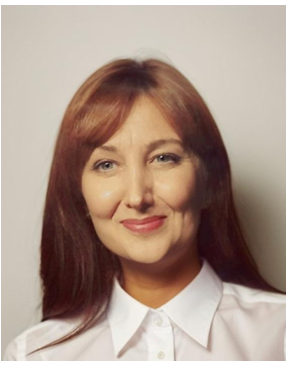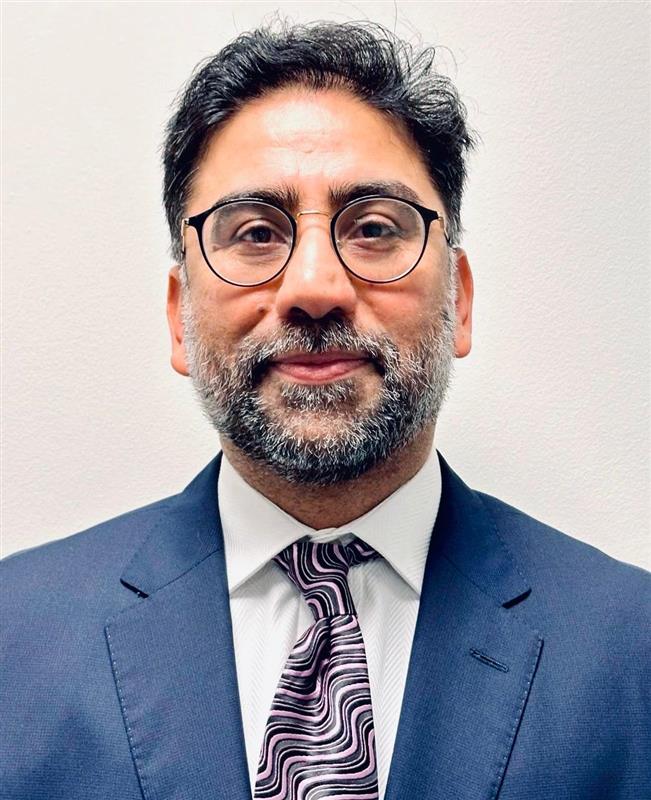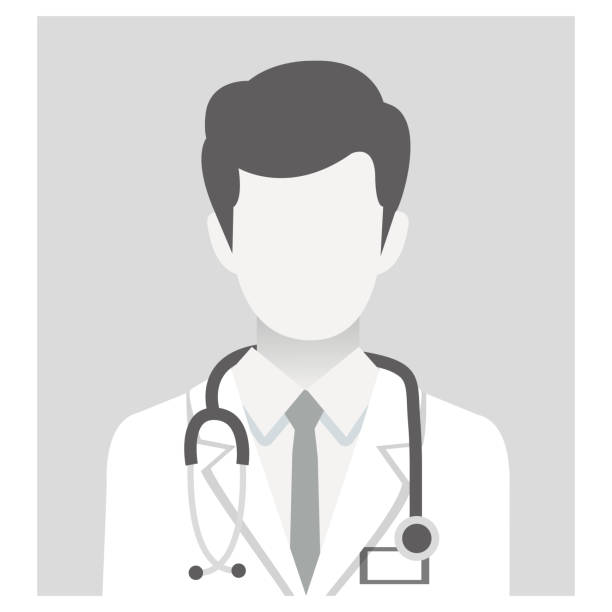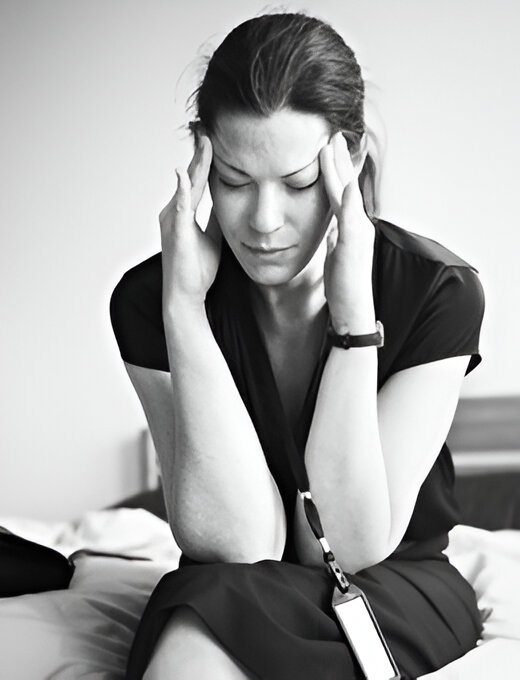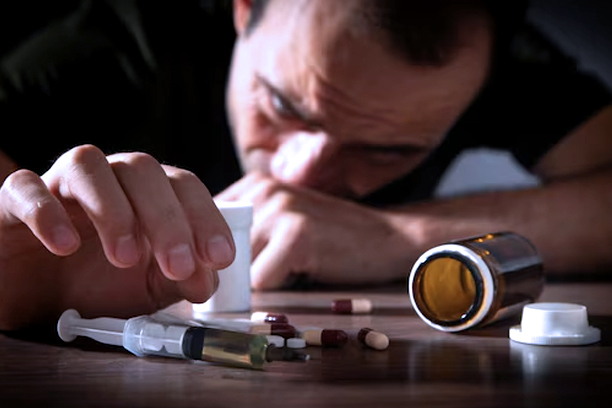
Note: This Service is Coming soon to better serve you.
What is Addiction
Addiction, whether to substances or behaviours, manifests through a range of physical, psychological, and behavioural symptoms. These symptoms can vary depending on the type of addiction, the substance or behaviour involved, and the individual. Below is a detailed breakdown of common symptoms associated with addiction.
Physically, individuals struggling with addiction may experience noticeable changes in their appearance and health. These can include fluctuations in weight, sleep disturbances, fatigue, withdrawal symptoms, and increased tolerance to the substance or activity. Over time, the body may begin to rely on the addictive substance or behavior to function normally, leading to a deterioration in overall physical well-being.
Physical Symptoms
1. Tolerance
- Needing increasing amounts of the substance or behavior to achieve the same effect.
- For example, drinking more alcohol or taking higher doses of a drug to feel the same "high."
2. Withdrawal Symptoms
- Physical discomfort or illness when the substance or behavior is reduced or stopped.
- Nausea, vomiting, or sweating (e.g., alcohol or opioid withdrawal).
- Shakiness, headaches, or fatigue (e.g., caffeine or nicotine withdrawal).
- Anxiety, irritability, or insomnia (common in many substance addictions).
3. Changes in Appearance
- Weight loss or gain.
- Poor hygiene or neglect of physical appearance.
- Bloodshot eyes, pale skin, or unexplained bruises.
4. Physical Dependence
- The body relies on the substance to function normally.
- Without it, the person experiences severe physical symptoms.

Psychological Symptoms
1. Cravings
- Intense urges or desires to use the substance or engage in the behavior.
- Cravings can be triggered by stress, environmental cues, or emotional distress.
2. Loss of Control:
- Inability to stop or reduce use, even when aware of the negative consequences.
- Repeated failed attempts to quit.
3. Preoccupation
- Spending a significant amount of time thinking about, obtaining, or recovering from the substance or behavior.
- Neglecting other interests or hobbies.
4. Mood Swings
- Irritability, anxiety, or depression when unable to use the substance or engage in the behavior.
- Euphoria or relief when the substance is used or the behavior is performed.
5. Denial
- Minimizing or denying the severity of the problem.
- Blaming others or external circumstances for their behavior.


Behavioral Symptoms
- Failing to meet obligations at work, school, or home.
- For example, missing deadlines, skipping classes, or neglecting family duties.
- Engaging in dangerous activities to obtain or use the substance (e.g., driving under the influence, stealing, or unsafe sex).
- Continuing to use despite knowing the risks to health, relationships, or legal status.
- Isolating from family and friends.
- Spending more time with others who share the same addiction.
- Hiding the extent of use or lying about it.
- Being dishonest about whereabouts or activities.
- Spending excessive amounts of money on the substance or behavior.
- Borrowing or stealing money to support the addiction.
1. Neglecting Responsibilities:
2. Risky Behavior:
3. Social Withdrawal:
4. Secrecy and Deception:
5. Financial Problems:

What We Offer
- Our team, led by Consultant Psychiatrists with years of experience in addiction medicine, will conduct a thorough assessment of your condition.
- This includes evaluating the severity of your addiction, any co-occurring mental health issues, and your overall physical health.
- We address not only the addiction but also any underlying mental or physical health issues.
- Based on the assessment, we will recommend the most appropriate treatments tailored to your needs.
- If suitable, we can provide community-based treatments, which may include therapy, counseling, and medication management.
- If detoxification or more intensive treatment is required, we will guide you to the appropriate NHS or non-NHS providers.
- While we do not provide rehabilitation or inpatient treatment at present, we will ensure you are connected to the right services for your recovery journey.
1. Expert Assessment:
2. Holistic Approach:
3. Personalized Treatment Recommendations:
4. Signposting to Specialist Services:
Confidentiality and Privacy
Your privacy is our priority. All consultations and treatments are strictly confidential.
We may request a summary of your medical records from your GP to ensure we have a complete understanding of your health. However, we will not share your information with your GP or anyone else without your explicit consent, unless required by law.

Frequently Asked Questions
It is a long established fact that a reader will be distracted by the readable content of a page when looking at its layout.
We can issue private prescriptions for private patients or send prescriptions directly to your nominated pharmacy, ensuring a convenient and efficient process.
Yes, our service is available for both adults and children diagnosed with ADHD.
We prescribe a range of ADHD medications, including stimulants (e.g., methylphenidate, lisdexamfetamine) and non-stimulants (e.g., atomoxetine), based on individual needs and clinical guidelines.
Yes, this service is available for private patients and through NHS, ICB, or Neurodiversity Services referrals. NHS patients should speak to their GP or healthcare provider to discuss a referral.
Yes, as a private clinic, we can issue private prescriptions following a comprehensive assessment. We also collaborate with your GP to ensure continuity of care and provide detailed recommendations for your treatment.
Assessments for ADHD and Autism typically last between 1 to 2 hours, though some cases may require additional time for a thorough evaluation.
Absolutely. Our specialists will continue to oversee your mental health care with follow-up appointments as needed, ensuring ongoing support tailored to your needs.
Your specialist will discuss alternative treatment options with you, including both medicinal and non-medicinal approaches, ensuring any changes are safe and appropriate.
Take the First Step Toward Recovery
If you or a loved one is struggling with addiction, don’t wait to seek help. Contact New Healing Solutions Clinic (NHSC) today to schedule an assessment and begin your journey to a healthier, addiction-free life.
Address
Woodland Drive Medical Centre Woodland Drive Barnsley S70 6QW
Call Us
01226 282 535Opening Time
9am to 5pm - Monday to Friday


